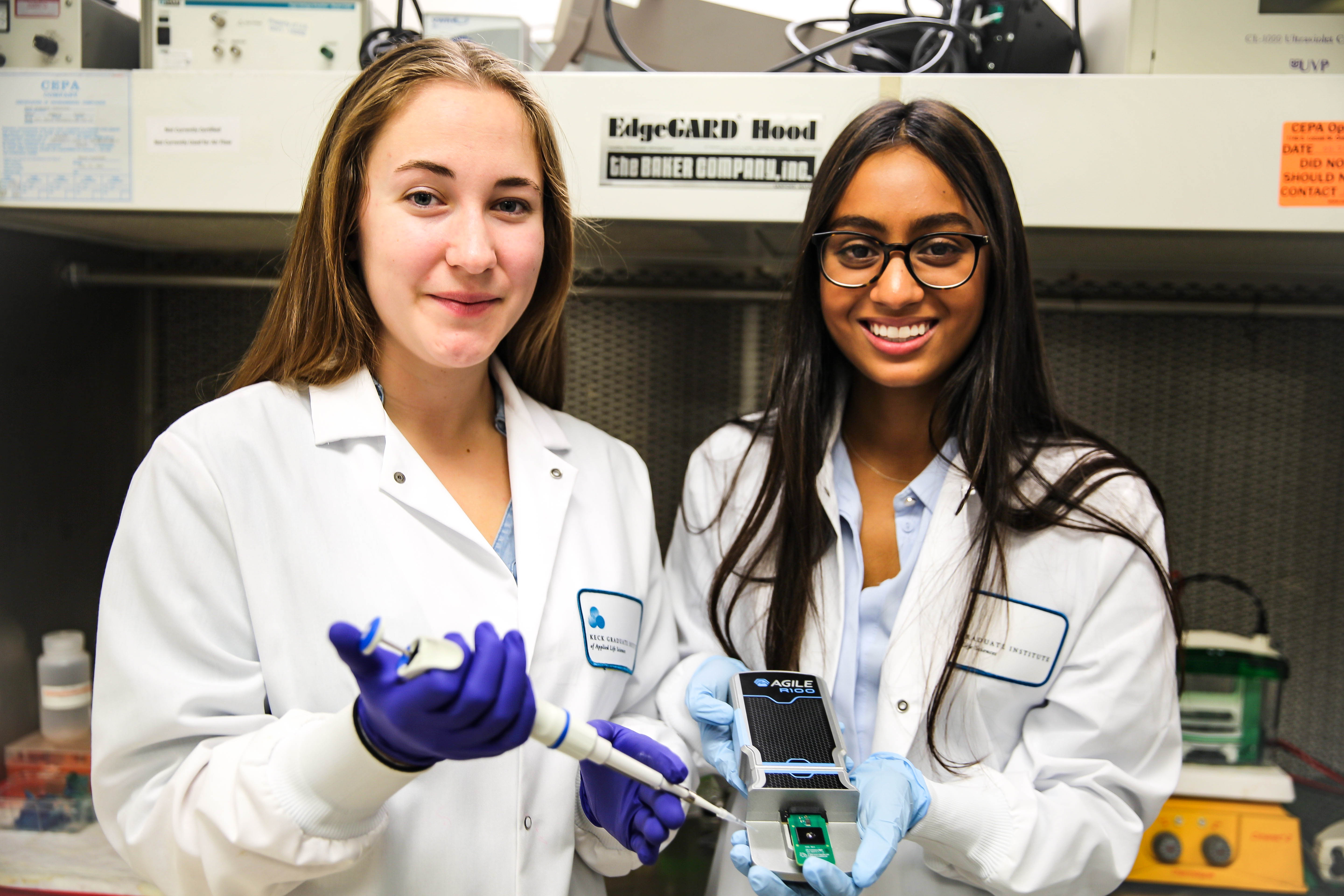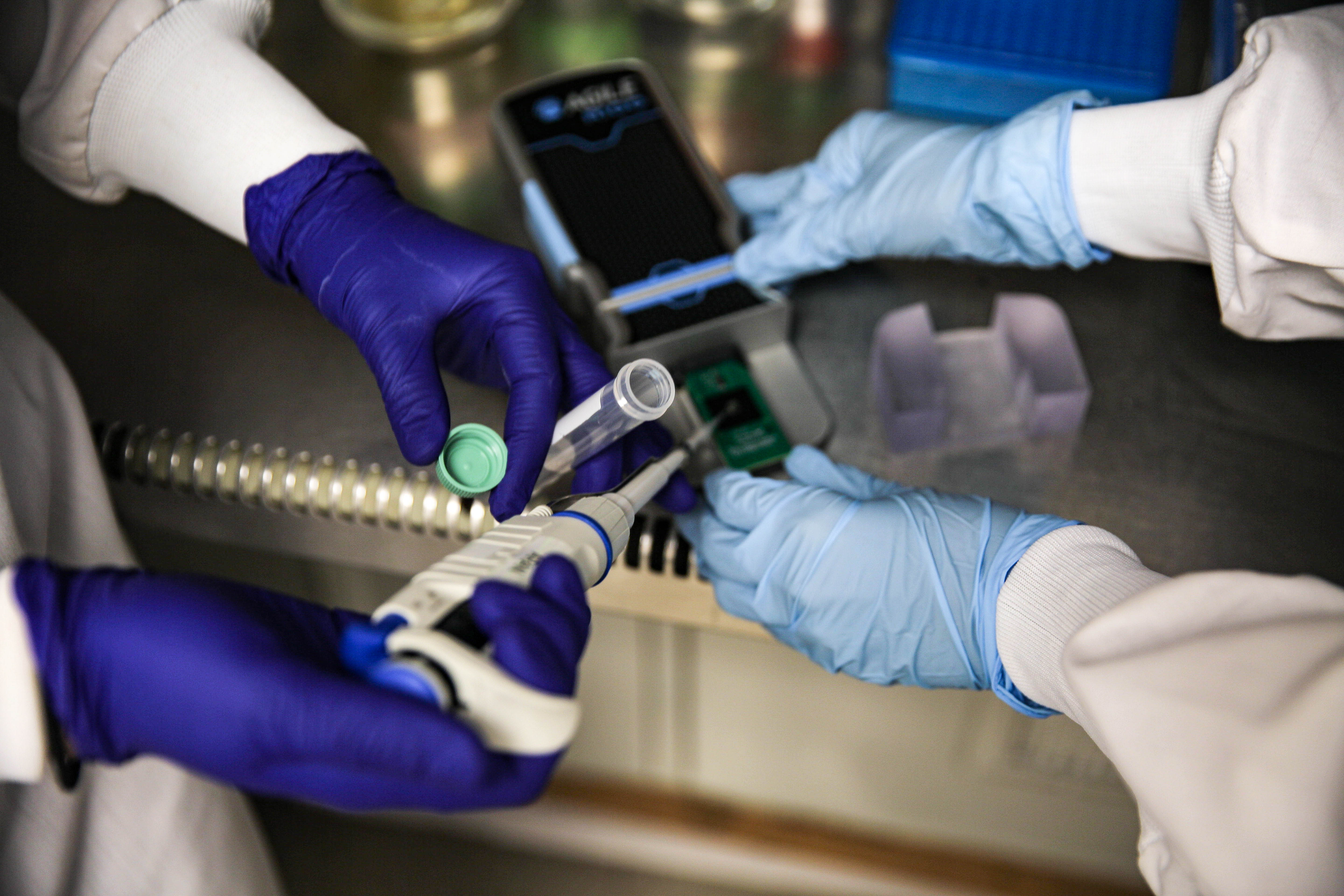
Since 1900, the percentage of Americans age 65 and over has more than tripled (from 4.1% in 1900 to 15.2% in 2016), with a total population projected to reach 98 million in 2060. As the population ages, the incidence of age-related health conditions also increases, and the need to identify and treat aging-related health conditions and biomarkers is ever more critical. Enter recent grads Sarah Balderston ’18 and Mandeep Sandhu ’18, who are part of the Keck Graduate Institute team, led by Assistant Professor of Medical Diagnostics and Therapeutics Kiana Aran, that has developed a palm-sized biosensor to gauge the effects of aging circulating biomarkers in the human body. The research group detailed their invention, called the Click-A+Chip, in the journal Lab on a Chip.
A signature symptom of aging is tissue attenuation—that is, the decline of the health and function of bodily tissues. Tissue attenuation can be identified by age-related changes to specific proteins in the blood. Researchers who study aging rely on blood samples to measure these changes; however, the methods for obtaining and analyzing blood samples are often complex, prone to error, and slow. The Keck team’s Click-A+Chip profiles blood proteins more quickly, accurately, and cheaply than previous technologies, and may ultimately lead to breakthroughs for diagnosing and treating other conditions.

“In the future, we could use our biosensor to study the circulating biomarkers of other conditions or diseases,” says Sandhu. Further, given its small size and speedy readout, “Click-A+Chip, could be used in in a wide variety of research applications to provide near-instant patient feedback for other scientists studying aging, providing new insights into biomarkers associated with different pathologies such as aging and cancer,” adds Balderston.
Sandhu dual majored in biology and religious studies with a concentration in contemporary and women’s studies in religion. She is currently working in the Aran Lab as a research assistant and will be attending medical school next year. Her senior thesis at Scripps explored CRISPR genetic editing through a religious/ethical lens. She attributes her development into an ethically guided and social aware scientist to her Scripps education, “especially the Core curriculum,” she says, adding “my intersectional Scripps education has provided me with a vital knowledge bank in which I am comfortable within the hard sciences and STEM fields, while also fully competent in engaging with humanities discourse regarding social structures, power dynamics, and ethics.”
Balderston studied biology with a minor in Hispanic studies while at Scripps. She conducted research for her senior thesis under Aran at KGI, which explored CRISPR functionalized magnetic beads for the detection of specific sequences within whole genome samples.
As more people look forward to greater longevity, the need to invest in research aimed at extending people’s active and healthy years is of pivotal importance. “We hope Click-A+Chip can help fulfill that need by improving the quality of age-related research and diagnostics, which will hopefully improve the quality of life for everyone once they reach more advanced ages,” says Balderston.

